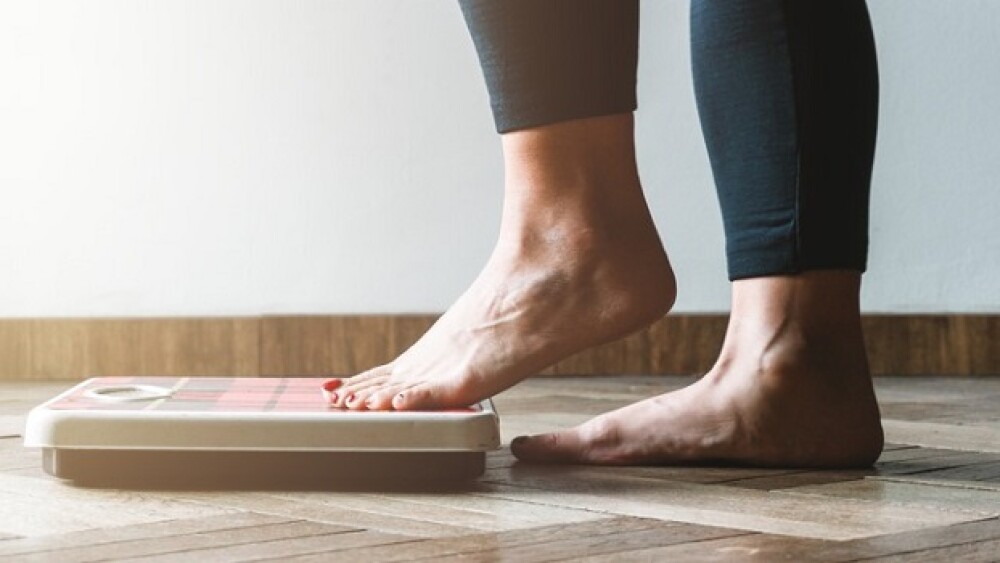A small research study published in Jama shows people with a lower body mass index (BMI) tended to maintain immunity against COVID-19 longer.
A research study published in the Journal of the American Medical Association (JAMA), found that people whose immunity against COVID-19 from the Pfizer-BioNTech vaccine waned less tended to have lower body weight. Another way of putting it is that people with a lower body mass index (BMI) tended to maintain immunity against COVID-19 longer.
The research included 50 South Korean young adult healthcare workers. They received two doses of the Pfizer-BioNTech mRNA COVID-19 vaccine, and none were previously infected with COVID-19. 80% of the participants were female. Blood was collected at two, four and six months after the second shot of the vaccine.
All of the participants’ anti-SARS-CoV-2 antibody levels stayed high for two months, with a median level of 93%, and four months, with a median of 91.5%. The levels began to drop at six months, with a median of 84.5%. They found that antibody levels were inversely related to body mass index (BMI).
According to the study, for adults who weighed 55 kilograms (122 lbs) or less, the anti-SARS-CoV-2-specific were higher at two, four and six months after the second vaccine. In further analysis, higher BMI was linked to a 4% to 5% decrease in anti-SARS-CoV-2 antibodies.
“The negative association of body weight with antibody response after SARS-CoV-2 BNT162b2 mRNA vaccination suggests that individuals with overweight [sic] may have less immunity with a fixed-dose vaccine, but it is difficult to generalize because of the small sample size,” the authors wrote.
The study did not find direct variations based on sex, drinking status, use of an antipyretic (to bring a fever down), chronic disease or use of vitamin supplements. Because the study involved 80% women, they ran a specific analysis on sex. The researchers found that every standard deviation increase in body weight was associated with a drop in anti-SARS-COV-2 antibody levels at six months in 5.6% of women in the study.
However, they also found the correlation between BMI was “less strong, suggesting that the lower immunogenicity may be more associated with total mass. This suggests that lower antibody response in individuals with greater bodyweight could be associated with underdosing rather than with a metabolic difference in young and middle-aged healthy adults.”
Although this small study focused specifically on waning immunity and BMI, immunity appears to be more focused on total body mass as opposed to BMI. A much larger study published in The Lancet in April 2022 by researchers out of King’s College London found that vaccine effectiveness waned after the second dose the most in people 55 years or older with comorbidities, including obesity.
That study evaluated data from 620,793 people who received two shots of the Pfizer-BioNTech, Moderna and AstraZeneca-Oxford vaccines. It also included unvaccinated cohorts and looked at how vaccine boosters improved efficacy.
The authors wrote, “After five months, vaccine effectiveness remained high among individuals younger than 55 years. Booster doses restore vaccine effectiveness. Adverse reactions after booster doses were similar to those after the second dose.”
From early in the COVID-19 pandemic, obesity has been associated with a higher risk of severe COVID-19. The predominant theory is that obesity is known to have an impact on the immune system, with an increased state of constant inflammation, altered blood cell counts and higher proinflammatory proteins in circulation. It also can decrease lung capacity.
A 2022 study published in BMJ Nutrition, Prevention & Health conducted a meta-survey of 208 studies with 3,550,997 participants from over 32 countries. The research found that being overweight was associated with an increased risk of COVID-19-related hospitalizations, but not death. But “patients with obesity were at increased risk of both COVID-19-related hospitalizations and death. Similarly, patients with extreme obesity were at increased risk of COVID-19-related hospitalizations and death.”





